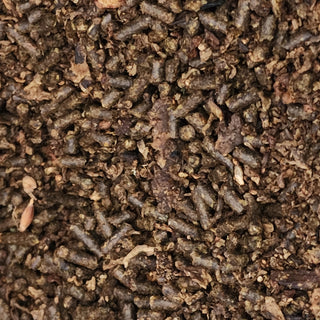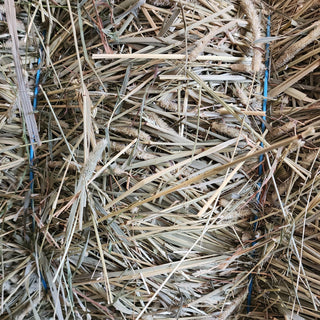Equine Nutrition
-

NSC Content (Sugar and Starch) in Horse Feed
Dr. Worth discusses NSCs (non-structural carbohydrates) in horse feed, how carbs act as important energy sources for horses, the effect of high sugar and starch content in a horse's diet,...
-

Forage, Hay, and Horse Care In Summer and Winter
We discuss the importance of providing horses with adequate hay and pasture forage during both the winter and summer months to meet their nutritional needs. Topics include the amount of...


